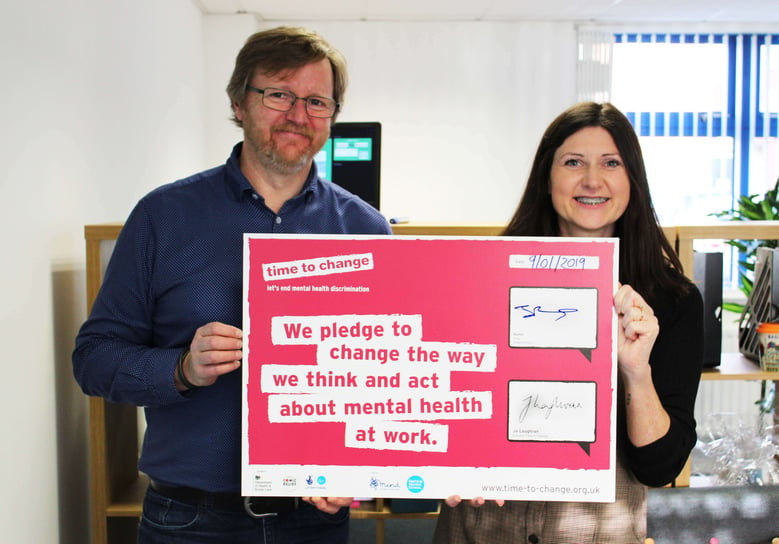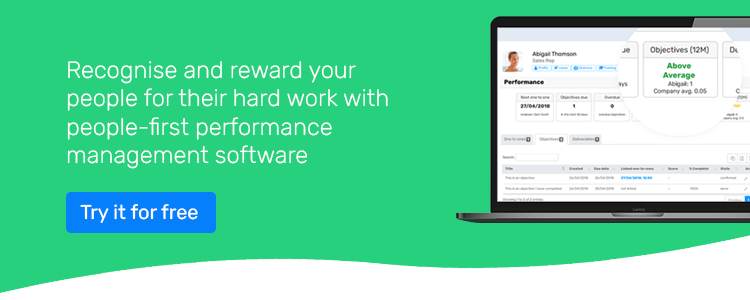12.7% of all sick days taken in the UK can be attributed to mental health conditions, according to Mental Health Foundation.
Additionally, around 17.1 million working days were lost in 2023-4 due to work-related stress, depression or anxiety, according to findings by The Health and Safety Executive.
Undiagnosed workplace depression can cause staff-retention rates, poor morale, decreased productivity, increased absenteeism and presenteeism. Outside the office can prove just as gloomy. Depression damages inter-personal relationships by causing the patient to retreat, cut-off communication with family and loved ones, neglect hygiene as well as adopt unhealthy coping mechanisms.
Stress, anxiety and depression in the workplace are often far harder to spot than a physical ailment. That's why we thought we'd lend a hand. Here's how to spot the signs of depression in the workplace.

What are the signs & symptoms of depression at work?
Depression can range from low mood and an overwhelming sense of hopelessness, (which affects cognitive function and performance) to intrusive, negative thinking patterns and personality disorders that welcome suicidal thoughts.
In its mildest form, from those who suffer, employers can expect to see a dip in concentration plus a struggle to stay focused, motivated and productive within the office. At its most severe, mental ill-health caused by depression is life-threatening.
The Mental Health Foundation recommend that we look out for:
- Loss of self-confidence and self-esteem
- Sadness that doesn’t go away
- Tiredness/loss of energy
- Difficulty concentrating
- Anxiety
- Feelings of hopelessness
- Avoiding other people, even close friends or family
- Sleep problems
- Feelings of guilt or worthlessness
- Loss of appetite
- Self-harm or suicidal thoughts/references
Why depression can go unnoticed
Depression in the workplace can change an employee's behaviour, although, admittedly, the red flags may not be as noticeable - especially if you don't know what you're looking for.
Severe and long-term anxiety is known to trigger our primal fight or flight mentality, leading to rash decisions, poor communication and further heightened stress levels. Instead of focusing on high-priority work, meetings and events, employees who suffer from depression may miss deadlines, mishear briefs and even seem less-dedicated to their job or the company.
Something as standard as getting out of bed, showered, dressed and into the office on time can feel monumentally difficult for someone who's in the depths of a depressive episode. What's worse, is that - chances are - they're reluctant to talk about it for fear of 'keeping up appearances'. Rather sadly, it is these exact types of behaviours that lead management to believe that they are unprofessional and lazy.
For employers striving for team or departmental peak performance, the lines blur when judging if an employee is genuinely suffering from depression or simply ill-suited to the job they are paid to do. And because it’s an imbalance of chemicals and therefore hidden, many miss the signs and forget to walk a mile, or even a metre in their colleagues' shoes.
Other work-related issues that magnify workplace depression and anxiety:
- fear of redundancy
- long hours,
- challenging targets,
- dealing with difficult customers or situations
- workplace bullying
Here's the good news. We have the tools to help manage workplace depression and develop our staff with the company. Invest in the right support and erase the stigma of mental health.
Supporting sufferers of mental ill-health
People who suffer from depression and anxiety are more than capable of not only holding down a successful full-time career, but also flourishing in the modern office. Practise authenticity, show vulnerability and create a safe atmosphere to encourage your team to open up and ask for help when they need it.
According to the CIPD good work index survey, 55% of respondents who had experienced depression in the past 12 months said work had contributed, but only 36% had discussed this with their boss or employer, according to MHFA England.
Let's replace a culture of fear and silence around mental health at work with clear guidance, empathetic talk and a supportive community.
Here’s the good news: as a responsible employer and human being, there are plenty of ways to help manage and support the mental health of your employees.

Mental health first aid team
Just as you have a dedicated first aider in your business it’s a great idea to have staff who are trained in spotting the signs of depression. Mental Health First Aid (England), launched their programme to train colleagues to support others across a variety of mental health issues.
Whilst Mental Health First Aiders aren't trained counsellors, they can listen & point struggling team members to the right professional body or source of support.
According to MHFA, mental health training should be part of a business’ overall first aid training programme and positive promotion of mental health must start at the top. If you have leaders and managers who support mental health, then you will be able to create and nurture a positive position around the issue.
Mental health toolkit
Developing a mental health toolkit will help your organisation action simple measures to deal with depression and mental health. It focuses around straight-forward direction and guidance, accompanied with easy signposting to the right services.
Business in the Community (in partnership with Public Health England) published a mental health toolkit as a guide for your organisation. It’s a very easy-to-follow step-by-step guide to ensure you can create an effective and supportive mental health programme for your business.
Supporting your team
Talk therapy is a remedy for a reason. One of the most important steps you can take as an employer is to communicate with your staff at all levels, as people. Promote positive discussion around mental health and depression and let them know that it's okay to be not okay.
Focus on the person not the problem and remember that we all react, behave and experience situations in different ways. It’s not always obvious.
Practice resilience and become it’s loudest advocate, share tips, stories of failures and success but remember to respect their confidentiality. Create a personal action plan and let your workplace mental health guardians support staff who may be struggling.

Author: Aimée Brougham-Chandler
An IDM-certified Digital Copywriter (2023) & English Language & Literature graduate (BA Hons), Aimée is Breathe's Content Assistant. With 3 years' content marketing experience, Aimée has a passion for writing - and providing SME HR teams with solutions to their problems. She enjoys delving into & demystifying all things HR: from employee performance to health and wellbeing, leave to company culture & much more.




